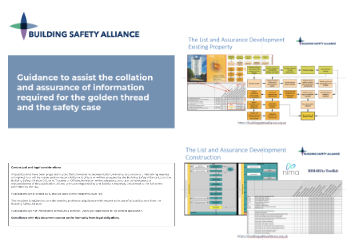Tender submission
Contents |
[edit] Introduction
A tender is a submission made by a prospective supplier in response either to an invitation to tender (ITT) or in response to an open tender. Tenders make an offer to supply goods or services. They will include the price for supplying the goods or services along with proposals for how the client's requirements will be satisfied – if these have been requested.
[edit] Conditions of tender submissions
Clients may impose conditions on tenderers, for example:
- To avoid restricting competition (and price fixing), tenderers may have to warrant that the prices in the tender have been arrived at independently without consultation with other tenderers;
- Prices may be submitted separately from other tender information.
- The tenderer may not directly or indirectly disclosed prices to other tenderers;
- The tenderer will not in any way try to influence other parties (individuals or firms) to either submit or not submit a tender in order to restrict competition to their advantage.
- Non-compliant tenders may be permitted, or only permitted if accompanied by a compliant tender.
- Prices may have to be broken down in a particular way to allow easy comparison with other tenders.
- Some sub-contractors or suppliers may be imposed by the cleint.
The precise content of tenders will vary considerably depending on the procurement route, however, they might include:
- A tender return slip, with details of the contract, including information such as return address and tender checklist;
- A completed tender pricing document (or contract sum analysis on design and build projects);
- Schedules of rates;
- An initial construction phase plan;
- Any design proposals or method statements that have been requested;
- Programme;
- Procedures to be adopted, such as procurement procedures and cost management procedures;
- Demonstration of capability, for example design capability, systems used etc;
- A BIM execution plan – if building information modelling is being used;
- Key project personnel, which may require submission of CVs;
- Management organisation;
- Plant and labour resources and availability;
- Prior experience, and
- References.
[edit] Getting it right
Tender submission is a process governed by a strict set of rules and requirements, some of which may seem basic but are nevertheless crucial. Failure to abide by these requirements may result in a failed tender. Some basic points to watch include:
- Ensuring the submission is not late;
- Ensuring information asked for is not missing;
- Ensuring everything is in the required format;
- Avoiding spelling and grammatical mistakes;
- Fully understanding the client’s requirements and specification, and
- Understanding obligations.
For more information see: Common mistakes in construction tenders.
[edit] Related articles on Designing Buildings Wiki
Featured articles and news
International Electrician Day, 10 June 2025
Celebrating the role of electrical engineers from André-Marie Amperè, today and for the future.
New guide for clients launched at Houses of Parliament
'There has never been a more important time for clients to step up and ...ask the right questions'
The impact of recycled slate tiles
Innovation across the decades.
EPC changes for existing buildings
Changes and their context as the new RdSAP methodology comes into use from 15 June.
Skills England publishes Sector skills needs assessments
Priority areas relating to the built environment highlighted and described in brief.
BSRIA HVAC Market Watch - May 2025 Edition
Heat Pump Market Outlook: Policy, Performance & Refrigerant Trends for 2025–2028.
Committing to EDI in construction with CIOB
Built Environment professional bodies deepen commitment to EDI with two new signatories: CIAT and CICES.
Government Grenfell progress report at a glance
Line by line recomendation overview, with links to more details.
An engaging and lively review of his professional life.
Sustainable heating for listed buildings
A problem that needs to be approached intelligently.
50th Golden anniversary ECA Edmundson apprentice award
Deadline for entries has been extended to Friday 27 June, so don't miss out!
CIAT at the London Festival of Architecture
Designing for Everyone: Breaking Barriers in Inclusive Architecture.
Mixed reactions to apprenticeship and skills reform 2025
A 'welcome shift' for some and a 'backwards step' for others.
Licensing construction in the UK
As the latest report and proposal to licence builders reaches Parliament.
Building Safety Alliance golden thread guidance
Extensive excel checklist of information with guidance document freely accessible.
Fair Payment Code and other payment initiatives
For fair and late payments, need to work together to add value.
Pre-planning delivery programmes and delay penalties
Proposed for housebuilders in government reform: Speeding Up Build Out.
High street health: converting a building for healthcare uses
The benefits of health centres acting as new anchor sites in the high street.
























